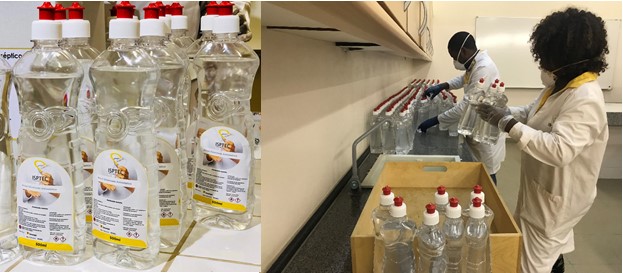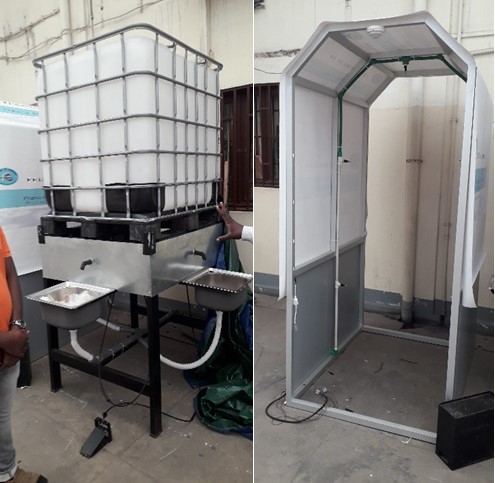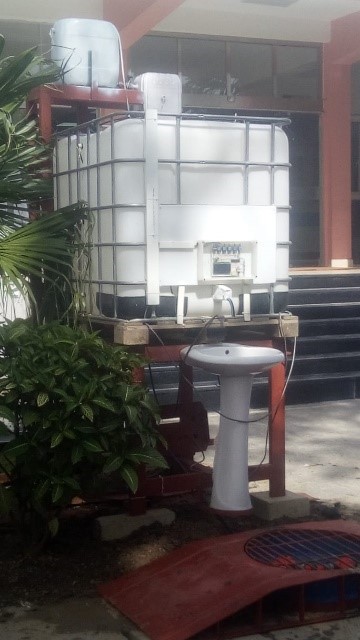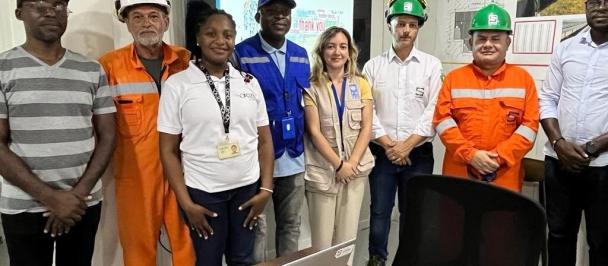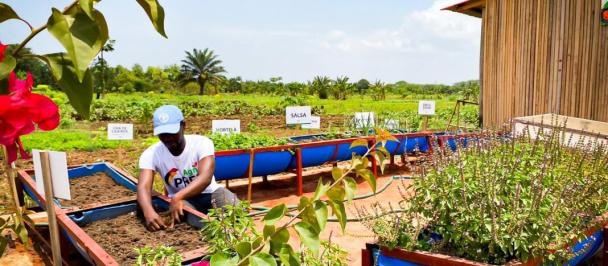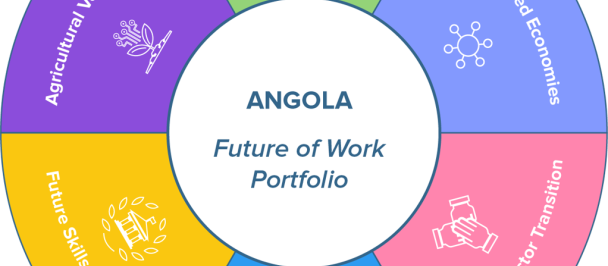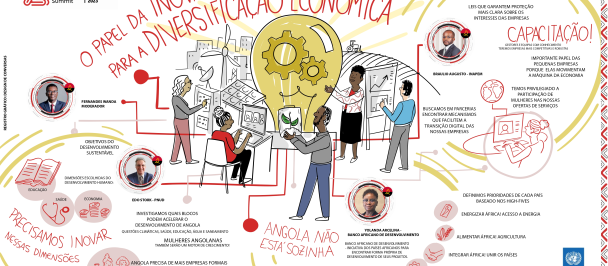Figure 1 Final product: glycerin alcohol. ©ISPTEC
Not all is bad news. Not everything is going downhill during this critical time, right? A positive chain of actions has been emerging from local universities throughout the country, representing a network of local innovation.
Several functioning interventions, either tech or not tech-based, have been created and rolled out to help mitigate the impact of the disease within the communities. It is worth mentioning that the innovators behind these COVID-19 related-solutions are Angolan professionals, (under)graduate students, researchers, engineers, and many other relevant young players that are also willing to help unplug this global pandemic out the country.
Emerging Solutions
1. HIGHER POLYTECHNICAL INSTITUTE FOR SCIENCE AND TECHNOLOGY(ISPTEC): FIRST NATIONAL PRODUCTION GLYCERIN ALCOHOL
A year to reach its 10th anniversary as an academic institution, ISPTEC has been contributing to the country’s science and technological relevance. With three cohorts of graduates in almost ten years, ISPTEC’s student community is not just growing in numbers, but also expanding and increasing their knowledge on several subjects. This progress can be recognized when looking at their constant engagement on national and international science and tech competitions, such as the Calouste Gulbenkian Foundation challenge, where they stood out and won the first prize. Winning the challenge promoted by the Calouste Gulbenkian Foundation granted the opportunity to use a 3D kit printer for safety materials/equipment against COVID-19.
After the Angolan authorities declared the country’s first-ever State of Emergency, back in March, ISPTEC announced its voluntary contribution as part of the academic support to respond to the pandemic. Their initial action started with the production of three thousand liters of glycerin alcohol, where one part was allocated to internal use and the other to be distributed to a chosen health unit.
ISPTEC has been benefiting from institutional and financial support from institutional entities, allowing the production and distribution of the glycerin alcohol to be free of charge and to continue bringing into life a series of other interventions amidst this pandemic. For example, the production of respiratory ventilators, which has been undergoing in collaboration with other academic institutions. Likewise, as a form of meeting sanitary protocols when academic activities resume and provide a safer environment for students and personnel, a disinfection tunnel is being designed and expected to be placed at pedestrian entry doors. Hence, adding up to the number on existing initiatives that are currently being developed to support the current situation.
Figure 2: Hygiene point and disinfection tunnel. © UAN
2. University Agostinho Neto (UAN)- ENGINEERING FACULTY- PRODUCTION OF FACE SHIELDS TO AVOID HAND FACE TOUCHING AND VENTILATORS
University Agostinho Neto (UAN) is Angola´s largest public university, belonging to the group of highly respected higher academic institutions in the country. It contributes with over 40 years of experience in teaching and scientific research and was named after Angola’s first president, UAN is the oldest higher academic institution in the country and the trailblazer as far as scientific research is concerned. UAN is also the most widespread university and can be credited for having the largest student community in the country. Similarly, in March, a group of 15 people with engineering backgrounds linked to UAN grouped up voluntarily to figure out how they could contribute to issues related to the COVID-19 response, presenting, as a starting point, the production of face shields that prevent medical practitioners and people from touching their own faces with potentially infected hands.
Additional projects related to the same cause include hygiene checking points and disinfestation chambers for public places, such as informal markets and public institutions. Also, the production of ventilators for hospitals in need is said to be under way. These projects are all being developed at Yeto Lab, a laboratory owned by the university, equipped with equipment’s and tools, such as 3D printers, that are used to manufacture the prototypes.
This main historical public university has already caught the interest of the Ministry of Health (MINSA), MESCTI, Engineers Association, and many others that are looking forward to tracking the progress of these engineers. On the other hand, while financial support is continuously sought for, a number of institutions have shown interest in supporting them financially with the acquisition of raw material, as mentioned by the inventors.
3. HIGHER POLYTHECNICAL INSTITUTE JEAN PIAGET OF BENGUELA AND NIBBLE TECHNOLOGICAL SOLUTIONS: 4/1 ROBOT AGAINST COVID-19
ISP Jean Piaget in Benguela city, located in the southern region of Angola, is considered one of the main contributors for academic development in the area for the past years, in subjects such as health sciences, engineering and others.
In a close partnership with Nibble, a small private tech enterprise, held by a group of electronic Engineers and Jean Piaget undergrad students based in the city, the university has made available their labs and gave other institutional support to further aid the enterprise on their ongoing work helping the country responding to COVID-19.
Nibble has then presented NK 4/1 sanitizing machine, also known as The Robot, that:
1. Measures body temperature through an inbuilt thermometer.
2. Disinfects the body/clothes through an inbuilt spray device.
3. Disinfects the hands by washing, using a self-activating water tap.
4. Disinfects the shoes with a rug containing a biochemical solution.
Figure 3: 4/1 ROBOT AGAINST COVID-19. ©Nibble
The NK 4/1 is meant to be used in public places, to provide the much-needed access to running water and other sanitizing conditions. Some public institutions such, as Benguela local hospital, the Higher Institute Jean Piaget, and the Higher Institute of Education Sciences are said to have acquired NK 4/1 prototypes that are currently being used.
These Institutions named above are illustrations that give us a glance of many other initiatives out there, portraying the will and creative strength of our young Angolan students. Picture this: with no lessons to attend or exams to prepare for, due to the closure of the faculties since March, some have preferred to lay back in the sofa, while other have decided to face the pandemic, by running a series of innovations capable of saving millions: Our Angolan population.
This is a 3 parts blog. Find part 1 here: What are the universities doing in times of COVID19? An Angolan overview.
Curious to know what can possibly come next in Angola academic field? Read our next and final piece on these local interventions: Forward Thinking: What can be done?

 Locations
Locations